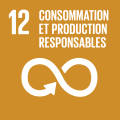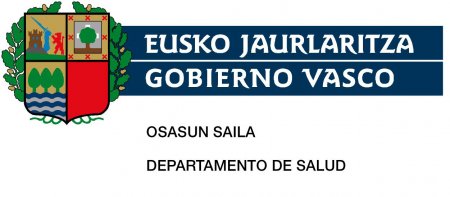
Sweeteners: health, obesity, safety and sustainability
Description
Sweeteners and their use in food processing and for health purposes is a subject generating nowadays big controversia, mainly because the real effects of the use of Sweeteners and Swetness enhancers on health are still unknown. In addition, the regulatory framework and consumers's perceptions of sweeteners and the use of these food ingredients is also under development. Given these premises, the EU funded the SWEET consortium, with the main aim of identifying and addressing the barriers and facilitators to the use of sweeteners and sweetness enhancers (S&SEs), as well as to examining the risks and benefits of using S&SEs to replace sugar in the diet in the contexts of health, obesity, safety and sustainability.
This Summer Course will serve as a channel for communicating to scientists, health professionals and general public the new findings on the use, acceptance and barriers within S&SEs use.
Objectives
To offer the last updates on sweeteners research on health and weight management. How their use may help to maintain good health indicators or weight control.
To inform patients and caregivers on how sweeteners may affect appetite, microbiota and other metabolic factors.
To explain how food technology is integrating the use of S&SEs in foods, and the origin of this S&SEs, either plant-based or artificial.
To widen the knowledge of consumers' perceptions, barriers and facilitators for the use of S&SEs, as well as to give light to regulatory aspects and dissemination strategies.
Activity directed to
- University student
- Students not from university
- Teachers
- Professionals
- All public
Methodology
The course will be offered by specialists in nutrition, health, psychology and industry, through brief sessions 30-40 minutes and the opportunity of having a Q&A interaction after the session. All speakers are recognised experts in their fields.
Program
27-06-2022
Registration
Institutional Opening session. Speaking order:
- jason Halford | EASO - President
- Anne Raben - | University of Copenhagen - Professor
- Jose Alfredo Martinez Hernández | Universidad de Navarra - Professor
“Evidence of the role of sweeteners on appetite and metabolism emerging from systematic reviews“
- Santiago Navas Carretero | University of Navarra - Researcher
“The role of non-caloric sweeteners in body weight regulation and glycemic control - Facts, myths and current research“
- Anne Raben - | University of Copenhagen - Professor
“Sweet Taste: Hedonic Impact and Control Over Food Intake“
- Graham Finlayson | University of Leeds - Professor
Coffee Break
“Sweeteners, microbiota and metabolic health“
- Ellen Blaak | University of Maastricht - Professor
“Sweet Tooth“
- Kees de Graaf | Wagenningen University - Professor
Synthesis
28-06-2022
“Sucrose functionality in fine bakery ware and impact of sucrose substitution on nutrition and sensory profiles “
- Alain Le-bail | Oniris - Professor (Participation by zoom)
“Production, efficacy and safety of novel plant based sweeteners and blends“
- Corey Scott | Cargill Ltd - Scientist
Coffee Break
“Consumption habits and acute effects of sweet beverage intake on appetite, metabolism and gastro-intestinal symptoms. Overview“
- Eva Almirón Roig | University of Navarra - Professor
“Consumption habits and acute effects of sweet beverage intake on appetite, metabolism and gastro-intestinal symptoms. Results of the Beverages Study“
- Jose Alfredo Martinez Hernández | University of Navarra - Professor
“Sweeteners Research: Using LinkedIn for impact in science“
- Sheree Bryant | European Association for the Study of Obesity (EASO) - Scientist
Synthesis
29-06-2022
“The EU regulatory framework for introduction of new S&SEs and impact on research and innovation“
- Monique Raats | University of Surrey - Professor
“Population based evidence about Sweeteners intake“
- Edith Feskens Johanna | Wagenningen University - Professor
“There is much to learn about the sustainability of sweeteners “
- James Suckling | University of surrey - Professor
Coffee Break
“The role of mass and social media in promoting risks and benefits of Sweeteners & Sweetness Enhancers“
- Monique Raats | Newcastle University - Scientist
Closing session
- Anne Raben - | University of Liverpool - Professor
Directors

Jose Alfredo Martinez Hernández
Universidad de Navarra, Catedrático
Santiago Navas-Carretero holds a grade in pharmacy by the Universidad Complutense de Madrid (2002) and a PhD in Nutrition (2007) in the same University, with the honors of European Doctor. He started working in the University of Navarra in 2008, where he has developed his research since then. Currently he is researcher in the Center for Nutrition Research. He is the principal investigator in various research projects and contracts (Nutriprecisión, MedKids, ALINFA and CORALS), apart from taking part as researcher in numerous studies at regional, National and International Level, where his participation in the 7th Framework Programme and H2020 is demonstrated through Food4Me, PREVIEW and SWEET. In addition, ha has authored/co-authored more than 120 scientific research articles or book chapters.
Speakers

Eva Almirón Roig

Ellen Blaak

Sheree Bryant
Sheree Bryant is Director of Communications for the European Association for the Study of Obesity and provides communications and dissemination support to the SWEET project.

Kees de Graaf

Edith Feskens Johanna
Wageningen University

Graham Finlayson
University of Leeds

Alain Le-bail
Professor Monique Raats is Director of the University of Surrey’s Food, Consumer Behaviour and Health (FCBH) Research Centre. FCBH research domains include: food-related behaviour and policy interventions (such as labelling, health claims) to achieve sustainable and healthy lifestyles; social, policy and ethical issues relevant to the grand societal challenges such as sustainability and obesity; study of food systems from the perspective of significant actors and stakeholders within the system; methodologically advancing the field of food consumer science through exploring novel sources of data and methods of data linking. She previously worked at the Institute of Food Research, Health Education Authority and University of Oxford. Her expertise is in the area of public health and behavioural nutrition research, gained on a variety of projects. Her research is wide ranging both in terms of topics covered (e.g. food choice, policy development, food safety) and methodologies used (e.g. qualitative, quantitative, stakeholder consultation). To date she has published over 140 refereed papers, other publications including 20 book chapters and edited two books ("The Psychology of Food Choice" and "Food for the Ag(e)ing Population").

Anne Raben -
University of Copenhagen

Corey Scott

James Suckling
University of Surrey
Dr James Suckling is a Research Fellow at the Centre for Environment and Sustainability, within the University of Surrey, UK. He trained as a physicist, before working for 6 years in R&D at Sharp. He has worked in sustainability for 6 years and researched diverse topics including circular economy models for mobile phones, up-scaling of niche innovations in the water-energy-food nexus, rearing insects for food and feed, and upscaling of smart local energy systems. All his research in CES has had a multi-disciplinary focus, including technical and social aspects throughout. He has expertise in life cycle assessment. His latest role is on the EU Horizon 2020 funded SWEET Project, researching the sustainability of replacing sugar with sweeteners and sweetness enhancers in food and drink.
Registration fees
| Face-to-face | Until 27-06-2022 |
|---|---|
| 135,00 EUR | |
| 110,00 EUR | |
| 77,00 EUR | |
| 27,50 EUR | |
| 0 EUR |
| Live online | Until 27-06-2022 |
|---|---|
| 110,00 EUR | |
| 110,00 EUR | |
| 71,00 EUR | |
| 77,00 EUR | |
| 27,50 EUR | |
| 0 EUR |
Venue
Miramar Palace
Pº de Miraconcha nº 48. Donostia / San Sebastián
Gipuzkoa
Miramar Palace
Pº de Miraconcha nº 48. Donostia / San Sebastián
Gipuzkoa
Sustainable development goals
Agenda 2030 is the new international development agenda approved in September 2015 by the United Nations. This agenda aims to be an instrument to favour sustainable human development all over the planet, and its main pillars are the eradication of poverty, a reduction in equality and vulnerability and fostering sustainability. It is a unique opportunity to transform the world up to 2030 and guarantee human rights for all.

3 - Good health and well-being
Guarantee a healthy life and foster the well-being of all people of all ages. Key issues: universal healthcare coverage, sexual and reproductive health, reduction in the number of road accident casualties, pollution and chemical products, reduction in maternal and neonatal mortality, the end of epidemics such as AIDS, combating hepatitis and other water-borne diseases, drug and alcohol prevention, control of tobacco.
More information
12 - Responsible consumption and production
Guarantee sustainable modalities of consumption and production. Key issues: sustainable management and efficient use of natural resources, reduction of chemical particles released to the atmosphere, water and soils, reduction of waste products, recycling, reuse and reduction, sustainable practices, sustainable public procurement, sustainable lifestyles, rationalisation of inefficient subsidies for fossil fuels.
More information
Other events of your interest
There are currently no events available.





